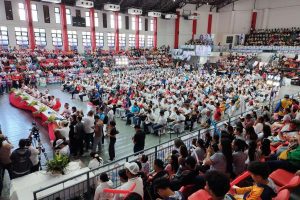Taxing the country’s growing digital economy will hamper health services, education, and the creation of businesses and jobs, even as it raises funds for the government’s fight versus Covid-19, Senator Imee Marcos said.
Marcos, who chairs the Senate committee on economic affairs, called “a double-edged sword” proposed revenue-generating measures including a 10% tax on all imported goods, conceived by the Department of Trade and Industry, and a tax bill on digital services in the House of Representatives.
“It’s a bit hasty to slap on new taxes in the midst of an economic crisis when people are looking for subsidies, discounts, and longer installment plans due to reduced incomes or jobs lost. Businesses will simply pass on the added tax costs to the consumers, most of whom are poor or middle-class,” Marcos said.
Contact-tracing apps, telemedicine, online learning, and e-commerce are becoming the norm worldwide, Marcos noted, which will increase public demand for imported digital products as necessities rather than luxuries.
“Never mind the Amazons and Lazadas, for now. A myriad of digital start-ups by entrepreneurial youth can grow a conflating economy and are waiting for government support, like online sari-sari stores, grocery deliveries and the home-based manufacturing of face masks and health essentials in our Ilocano ‘BUYanihan’ program,” Marcos said.
Marcos added that the growing ‘gig economy’ of work-from-home arrangements, freelance work, and self-employment, is also the emerging template of how a conflating, post-Covid economy will run.
“New taxes at this time can discourage broader public use of digital tools and services. We must first be allowed to get familiar and participate in the world’s new ways of getting things done to stimulate business and job creation,” Marcos also said.
“The best use of government’s limited resources from current taxes and external loans should cover MSMEs (micro, small and medium enterprises), whether brick-and-mortar or digital,” Marcos added. (PR)












